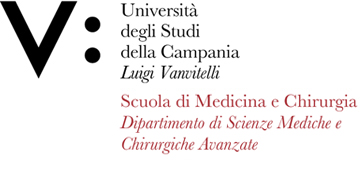Sandro BANFI
Insegnamento di MEDICAL GENETIC 1
Corso di laurea magistrale a ciclo unico in MEDICINA E CHIRURGIA
SSD: MED/03
CFU: 1,00
ORE PER UNITÀ DIDATTICA: 10,00
Periodo di Erogazione: Annualità Singola
Italiano
| Lingua di insegnamento | Inglese |
| Contenuti | Comprensione del ruolo di fattori genetici in patologie umane, sia di natura monogenica che mulifattoriale |
| Testi di riferimento | Materiali didattici disponibili a lezione sotto forma di files elettronici. Testi consigliati per consultazione ed integrazioni sono: |
| Obiettivi formativi | Al termine del corso, lo studente avrà acquisito la necessaria competenza per l’indicazione dei test genetici appropriati e per l’interpretazione dei loro risultati sia in ambito di consulenza prenatale che postnatale. Inoltre, lo studente dovra’ maturare le conoscenze adeguate per riconoscere le principali malattie genetiche e sindromi complesse. |
| Prerequisiti | Lo studente deve aver già superato tutti gli esami del 4 ° e 5 ° anno |
| Metodologie didattiche | Lezioni frontali e lavoro interattivo con gli studenti su questioni aperte. |
| Metodi di valutazione | Esame orale. |
| Altre informazioni | La frequenza a lezione è necessaria perché le lezioni sono interattive |
| Programma del corso | 1. I test genetici. L'analisi del cariotipo e i bandeggi, la FISH. Array CGH. PCR, sequenziamento, real-time PCR, MLPA. Analisi di linkage, microsatelliti, CNV e SNPs. Next generation sequencing (NGS), WGS, WES, targeted NGS. Test prenatali invasive e test prenatali non invasivi, incluso il Noninvasive Prenatal Testing (NIPT) |
English
| Teaching language | English |
| Contents | Knowledge of the role of genetic factors in human disease, both monogenic and multifactorial ones |
| Textbook and course materials | Teaching materials available in class in the form of electronic files |
| Course objectives | At the end of the course, the student will acquire the knowledge necessary to recommend the appropriate genetic tests and to interpret the related results both in prenatal and postnatal counseling. The student will also acquire the appropriate knowledge to recognize the main genetic diseases and complex syndromes. |
| Prerequisites | The student must have already passed All the 4th and 5th year exams |
| Teaching methods | Lectures and interactive work with students on open issues. |
| Evaluation methods | Oral examination. The oral exam is based on two questions. Appropriate knowledge of genetic diseases treated in class, of supporting molecular diagnostic tests and of a mechanism / reasoning of medical genetics will be required to demonstrate the understanding of logical pathways. Answers not given, off topic or generic knowledge will be considered as elements of insufficiency. The praise will be proposed collegially for students who will demonstrate a knowledge beyond that required by the course. |
| Other information | Attendance to classes is necessary because the lessons are interactive |
| Course Syllabus | 1. Genetic tests. Karyotype analysis, FISH. Array CGH. PCR, Sanger sequencing, real-time PCR, MLPA. Linkage analysis, microsatellites, CNV and SNPs. Next generation sequencing (NGS), Whole Genome Sequencing (WGS), Whole Exome Sequencing (WES), targeted NGS. Invasive prenatal tests. Non-invasive Prenatal tests, including Non-invasive Prenatal Testing (NIPT) |








